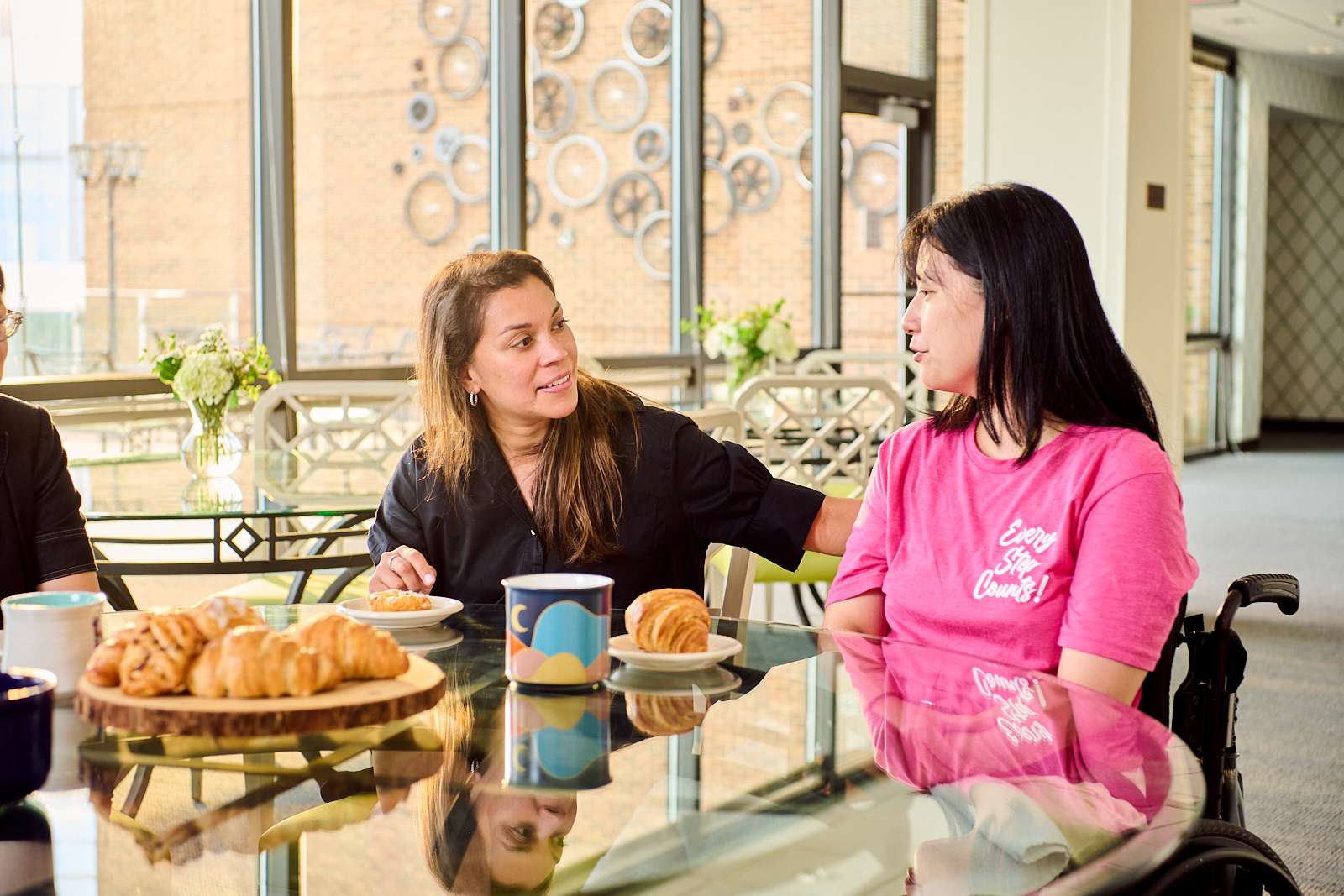Rehabilitation psychology education goals and program structure
This 24-month fellowship prepares future rehabilitation psychologists to deliver culturally responsive, specialized care across diverse rehabilitation settings. Fellows gain experience with both inpatient and outpatient populations, including individuals with traumatic and non-traumatic spinal cord injuries, spinal cord disorders, and complex dual diagnoses, such as combined spinal cord and brain injuries. Additional rotations provide opportunities to work with patients experiencing brain injuries, multiple sclerosis, chronic pain, complex concussions, and military veterans through our SHARE Military Initiative.
Exit criteria for program completion
To successfully complete the fellowship, fellows are expected to meet the following accomplishments, based on the Baltimore Conference Guidelines:
- Clinical proficiency: Provide evidence-based assessment and interventions with individuals and families experiencing problems related to physical and cognitive impairment, ability, limitation, and participation restriction that focus on individual and family functioning, including affective, cognitive, personality, and behavior functioning as well as social, educational, vocational, and recreational participation.
- Interprofessional collaboration: Actively participate in collaborative consultation across clinical, program, and community levels to deliver comprehensive care for individuals with disabilities, enhancing the effectiveness of the rehabilitation team and program.
- Scholarly contributions: Demonstrate scholarly activity through submission of a study or literature review for publication, presentations, grant proposals, or outcome assessments.
- Competency evaluation: Undergo formal evaluations to assess competencies in clinical, collaborative, and scholarly activities throughout the fellowship.
- Licensure eligibility: Meet the requirements for state licensure in the state or province in which the fellow intends to practice.
- Board certification preparation: Fulfill eligibility for board certification in rehabilitation psychology by the American Board of Professional Psychology.
Program-specific requirement: Fellows are expected to complete Part 1 of the Examination for Professional Practice in Psychology (EPPP) by December of the second year of fellowship. Completion of Part 1 is mandatory for program graduation.

